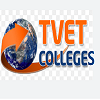What Is The Difference Between Fet And Tvet Colleges 2024
What does FET phase mean, What Is The Difference Between Fet And Tvet Colleges 2024
Welcome to an enlightening exploration of the distinctions between FET (Further Education and Training) and TVET (Technical and Vocational Education and Training) colleges. These terms are often used interchangeably, yet they encompass nuanced differences that can greatly impact your educational journey. In this article, we will unravel the unique characteristics of FET and TVET colleges, providing you with a comprehensive understanding of how each avenue shapes your learning experience, career prospects, and personal growth. By the end, you’ll have a clear compass to navigate the world of vocational and technical education, empowering you to make informed decisions about your educational aspirations. Join us as we delve into the intricacies that set FET and TVET colleges apart, helping you chart a path towards a successful and fulfilling future.
When it comes to pursuing technical and vocational education, the terms “FET” (Further Education and Training) and “TVET” (Technical and Vocational Education and Training) are often used interchangeably. However, these two terms encompass subtle yet significant differences that influence the education and training paths available to students. In this article, we will unravel the dissimilarities between FET and TVET colleges, providing you with a clearer understanding of their respective focuses, offerings, and benefits.
FET Colleges: Building a Strong Foundation
FET, which stands for Further Education and Training, refers to a subset of educational institutions in South Africa that offer a variety of vocational and occupational programs. These colleges cater to students who have completed their basic education but are seeking specialized skills and training to enter the workforce or advance in their careers.
FET colleges provide a wide range of courses that cover fields such as
- business,
- management,
- hospitality, and engineering.
These programs are designed to equip students with the practical skills and theoretical knowledge required for specific job roles. FET colleges typically offer National Certificate (Vocational) courses, National N-Diplomas, and other specialized qualifications.
Read Also; FET College In Pretoria 2024-2025
TVET Colleges: Emphasizing Practical Expertise
On the other hand, TVET colleges, or Technical and Vocational Education and Training colleges, have a broader scope that extends beyond FET colleges. TVET colleges focus not only on vocational skills but also on technical skills and theoretical knowledge in various industries. The emphasis here is on providing a holistic education that prepares students for both immediate employment and further academic pursuits.
TVET colleges offer a comprehensive selection of programs, ranging from traditional trades like
- plumbing,
- electrical work, and carpentry
- information technology,
- healthcare, and
- multimedia.
These institutions are driven by the goal of producing well-rounded professionals who are not only adept in their chosen fields but also possess a solid understanding of the underlying principles that drive their industries.
Key Differences Between Fet And Tvet Colleges
The primary difference between FET and TVET colleges lies in the breadth of their offerings. While FET colleges predominantly focus on vocational education, TVET colleges embrace a more comprehensive approach that integrates technical training and theoretical knowledge.
Another distinction is that FET colleges may offer programs that are shorter in duration and more specialized, directly preparing students for specific job roles. Meanwhile, TVET colleges often provide a broader educational experience, allowing students to acquire a diverse skill set that can open doors to multiple career pathways.
Public TVET Colleges Bursaries
Colleges that operate under the term TVET are public colleges that benefit from state funds and subsidies. Thus, students studying at TVET Colleges are eligible for funding from NSFAS if they meet the other requirements.
The NSFAS criteria for TVET students are as follows:
- Must be a South African citizen
- Must be registered or intending to register on a PLP, NC(V) or Report 191 programme at any public TVET College in South Africa
- Must be admitted/received a firm offer for enrolment in a College
- Must be in need of financial assistance
- Applicants will qualify if they fall within the maximum threshold of up to R350 000 of combined gross family income per annum
- Returning students must demonstrate proven and accepted academic performance (academically deserving) in line with the College’s progression policy or the progression prescriptions of the Bursary Rules and Guidelines (whichever is higher)
- Must not be enrolling for a qualification that duplicates previous learning that was state-funded
READ ALSO; FET Colleges In Johannesburg 2024-2025
In conclusion, while FET and TVET colleges share the common goal of providing practical education and training, they differ in terms of their scope and focus. FET colleges cater to those seeking specific vocational skills for immediate employment, while TVET colleges offer a well-rounded education that encompasses both technical expertise and theoretical understanding.
